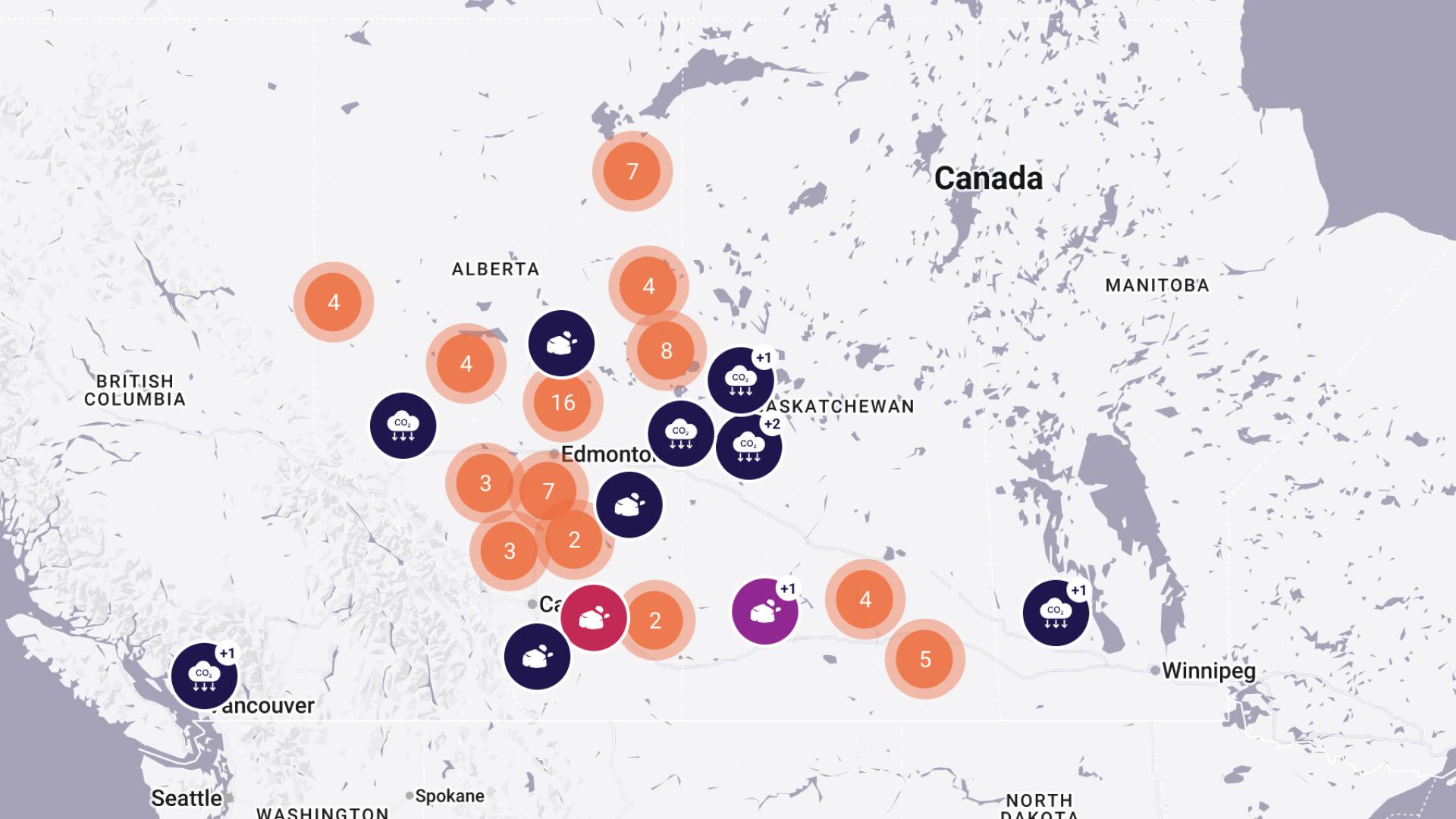A new online tool is mapping Canada’s carbon capture story.
The Government of Alberta and Regina-based International CCS Knowledge Centre have launched an interactive map and research repository showcasing Canada’s experience with carbon capture, utilization and storage (CCUS).
The platform is designed to help investors and policymakers make informed decisions about future projects, strengthening Alberta’s leadership in CCUS.
The map identifies nearly 60 proposed carbon capture, transportation and storage facilities in the province.
“There is a big demand from people looking for CCS experience,” said Knowledge Centre CEO James Fann.
With many of the leaders who built Western Canada’s CCS industry retiring — the first project, in Saskatchewan, began operating in 2000 — Fann said it’s important to ensure their expertise and research remain accessible.
“We learned it is really important to capture that information, that knowledge experience, while they are still engaged,” Fann said.
“You can mix that human experience with what documentation is out there.”
Resources available on the new site include CCUS technology explainers, project economic tools and regulatory framework comparisons.
The Knowledge Centre says looking at past and current projects can help future developers better tackle technical and economic challenges, share best practices and manage risks more effectively.
Fann said the team spent time engaging with stakeholders to determine the most effective resources to include on the site.
“It was about a year of connecting with companies, one on one, and collecting all the information from around the world,” he said.
“What would you like to see? What would help projects going forward? What would you be willing to share?”
There are around 20 resources on the site now, with a goal of 40 by the end of the year.
Alberta’s Ministry of Environment and Protected Areas said the new resource reflects the province’s growing CCUS sector.
“We have already sequestered 14 million tonnes of CO2 equivalent and are a model for jurisdictions around the world,” the Ministry’s office said in a statement.
“By gathering insights from existing carbon capture projects and transforming them into practical tools and guidance, we’re helping industry move projects faster, protect jobs and lower emissions.”
The unaltered reproduction of this content is free of charge with attribution to the Canadian Energy Centre.
